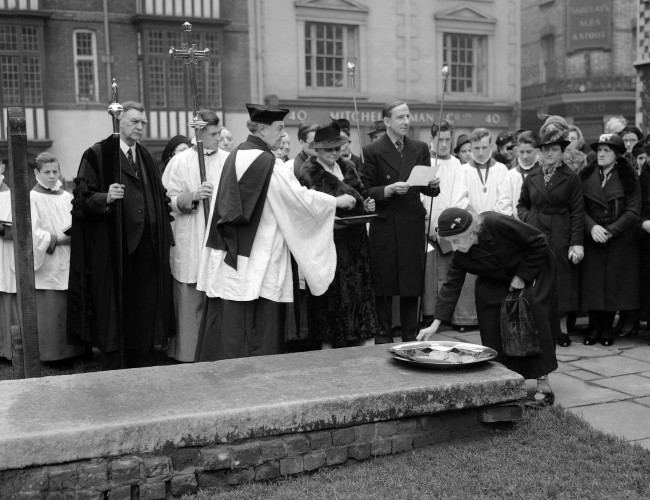Why Raising The Minimum Wage Isn’t A Great Way To Help The Poor

In accordance with ancient custom after the Good Friday service at St. Bartholomew The Great Smithfield, 21 poor widows of the Parish were invited to pick up sixpences from an old flat tombstone. They also afterwards received a hot cross bun each from an alms dish. Some of the 21 poor widows picking up the sixpences from the flat tombstone outside St. Bartholomew The Great in London, on April 7, 1939. (AP Photo)
Date: 07/04/1939
WE’RE being told, endlessly, that we must raise the minimum wage in order to increase the incomes of the working poor. It’s an outrage that people cannot support themselves in the style we think they all ought to be simply by the sweat of their brow. Thus the minimum wage must be raised to a truly living wage to make the world a better place.
However, here’s why that’s not actually all that great an idea:
Across the bulk of the income distribution, a 10% rise in the NMW leads to an increase in net family income amongst NMW families of around 3%; this is around 4% for families where the NMW is the main source of earnings, and around 2% for families where the NMW is the secondary source of earnings.
Very little of a rise in the minimum wage actually gets to the working poor. This is because when the min wage rises so do the taxes that are taken from it. So also do the benefits paid to people fall.
We’re not, therefore, actually making the working poors’ lives that much better by insisting that wages should rise. Although we will, obviously, at the same time making sure that some of those working poor lose their jobs at the same time.
In fact, when you look at the living wage you find that, post tax, it’s within pennies an hour of the current minimum wage if that paid no tax. People aren’t being pushed into poverty because of low wages therefore. Instead, they’re being pushed into poverty by taxes being too high. Meaning that the solution would seem to be taxing the poor rather less so that they have more money of their own to spend.
You know, if you want people to have more money then take less money off them?
Posted: 29th, January 2014 | In: Money, Politicians, Reviews Comment (1) | TrackBack | Permalink


